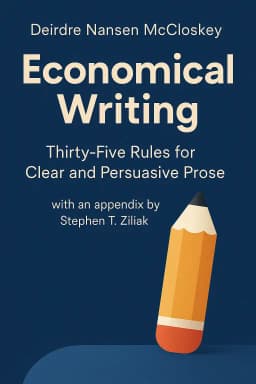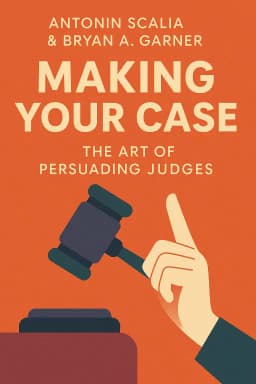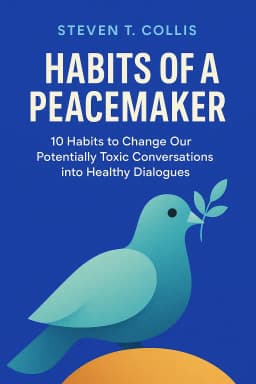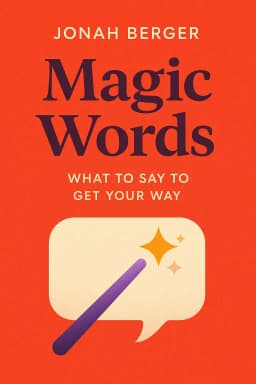
The Authenticity Trap
Golden Hook & Introduction
SECTION
Michelle: The most dangerous piece of advice in the digital age might be 'be yourself.' Mark: Whoa, that's a hot take. I feel like that’s the first line of every inspirational Instagram post. 'Just be you!' Michelle: Exactly! But if 'yourself' is a jerk online, or just careless, you're not just losing friends, you're becoming professionally radioactive. And the antidote, funnily enough, is almost a century old. Mark: Okay, I'm hooked. You're telling me my grandpa's advice is more relevant than a Silicon Valley guru's? Michelle: That’s precisely the argument in the book we’re diving into today. It’s How to Win Friends and Influence People in the Digital Age, an adaptation of the Dale Carnegie classic by Brent Cole. Mark: Brent Cole. Now that's fascinating. I looked him up. This is a guy who's a master ghostwriter. He's written over a dozen bestsellers for celebrities, athletes, and CEOs. A man whose entire career is about crafting an authentic voice for other people is now telling us how to be genuine. Michelle: It’s the perfect paradox, isn't it? And it gets right to the heart of the book's central tension: the massive difference between performing authenticity and actually being a person of character. The book argues that in our world of 'hair-trigger balances,' as one writer put it, where one misunderstood tweet can cause a disaster, these old-school principles are our only real navigation system. Mark: A navigation system for not getting cancelled. I can see the appeal. But the title itself, How to Win Friends, still sounds a bit… transactional. Like I'm collecting people. Michelle: And that is the exact trap the book wants us to avoid. It makes a powerful distinction early on. It says there are two ways to approach people. One is 'from the teeth out'—a superficial, calculated performance. The other is 'from the heart out'—a genuine, character-driven connection. The first one is easy, fast, and ultimately hollow. The second is hard, slow, and the only thing that actually works long-term.
The 'Up in the Air' Problem: Why Timeless Principles Trump Trendy Tech
SECTION
Mark: 'From the teeth out.' That perfectly describes half the emails I get. The ones that start with 'Hope you're having a great week, Mark!' from someone who clearly just wants something. It feels so empty. Michelle: It’s the definition of empty. And the book uses a brilliant modern parable to illustrate this emptiness. It’s the story of Ryan Bingham, the character George Clooney plays in the movie Up in the Air. Mark: Oh, I know him. His job is literally to fly around the country and fire people. He’s the master of the gentle letdown. Michelle: He’s the master of transactional proficiency. His entire life is built on efficiency and detachment. He collects air miles instead of relationships. He can deliver a layoff speech with a perfect veneer of empathy, making people feel almost okay about losing their job. He is the walking embodiment of 'from the teeth out.' He's charming, he's smooth, but he is profoundly alone. Mark: Right, he has that whole speech about the empty backpack. Don't let relationships weigh you down. It's a lonely philosophy. Michelle: Exactly. And his crisis comes when his company wants to digitize his job. They want to fire people over video conference, which is even more detached, even more transactional. Ryan fights it, arguing for the 'human touch,' but the irony is that his own human touch is a performance. He goes on the road with a young, ambitious colleague, Natalie, to show her the ropes. Mark: And he starts to see the cracks in his own life, right? Michelle: The cracks become canyons. He attends his sister's wedding and is asked to take a cardboard cutout of the bride and groom to take pictures with on his travels because he's never around for the real moments. He develops what he thinks is a real connection with a fellow traveler, Alex, only to discover she has a family and their relationship was just a pleasant diversion for her, as transactional as everything else in his life. Mark: Ouch. That’s a rough realization. Michelle: It’s devastating. He has a moment of clarity and flies to Alex’s house, thinking he’s ready for a real connection, and she opens the door with her husband and kids behind her. He’s left standing on the porch, realizing his entire philosophy is a sham. He has a million air miles but no one to come home to. He’s an expert at influencing people in the short term, but he has no real, lasting relationships. Mark: Wow. That is a brutal but perfect image for so much of what we see online. The performance of caring. It’s the corporate LinkedIn post about mental health from a company that burns out its employees. It’s the influencer crying on camera for engagement. It’s all 'from the teeth out.' Michelle: And that’s the book's core argument. It says Carnegie's original work was never about learning tricks to manipulate people. It was what the author calls 'soul-help,' not 'self-help.' It’s based on the Golden Rule. It’s about cultivating a genuine interest in other people, because, as Carnegie himself said, "You can make more friends in two months by becoming more interested in other people than you can in two years by trying to get people interested in you." Mark: I see the point, but some of the reader reviews I saw online pointed this out too—that the book’s advice can feel very business-centric. It’s about networking, social media for your brand... It doesn't always feel like it's about making actual, you know, friends. Michelle: That’s a fair critique, and the examples do often lean professional. But the underlying principle is universal. Whether you're trying to lead a team, comfort a friend, or even apologize to your partner, the question is the same: Is this coming from a place of genuine care, or is it a performance designed to get a specific outcome? Ryan Bingham was a master of the performance, and it left him completely hollow.
The Trust Trinity: Building Influence That Lasts
SECTION
Mark: Okay, so if the Ryan Bingham way—the 'from the teeth out' method—is the path to lonely, hollow success, what's the alternative? How do you actually build that 'from the heart out' influence without it just becoming a more sophisticated performance? Michelle: The book provides a really clear framework for this. It argues that all lasting influence, all real connection, is built on a foundation of trust. And trust isn't some vague, mystical quality. It’s the result of three specific, observable pillars. The book calls it the Trust Trinity: Competence, Connection, and Character. Mark: Competence, Connection, Character. Okay, break that down for me. Competence seems straightforward—you have to be good at what you do. Michelle: Right, but it's more than just having skills. It’s about delivering results. The book tells the story of a newly promoted project manager named Sarah at a tech company. She was a brilliant engineer—top of her class, amazing technical skills. But she was a terrible manager. Mark: I think we've all worked for Sarah at some point. Michelle: We have. She couldn't delegate, she micromanaged everyone, she failed to set clear goals, and she never communicated with the project's stakeholders. The team was full of A-players, but they felt unheard and frustrated. Deadlines were missed, the work quality plummeted, and eventually, the entire multi-million dollar project was shut down. Sarah was demoted. Her technical competence was high, but her leadership competence was zero. She destroyed trust because she couldn't deliver. Mark: That makes sense. You can't trust someone who can't do the job. So what's the second pillar? Connection? Michelle: Connection is about demonstrating that you genuinely care about people as human beings, not just as cogs in a machine. The book contrasts Sarah's story with that of a CEO named Michael, who was hired to turn around a failing manufacturing company. Mark: A much tougher job than managing one project. Michelle: Immensely. The company was on the verge of bankruptcy, and morale was at rock bottom. The employees felt completely disconnected from management. So what does Michael do? He doesn't just issue memos from his corner office. He spends his first few weeks on the factory floor, in a hard hat, talking to the workers. He asks about their families, their frustrations, their ideas. He holds town hall meetings where he listens more than he talks. He implements programs to recognize and reward people's contributions. Mark: He's building bridges. Michelle: He's building a human connection. And over time, that connection rebuilt trust. People started to feel valued, they started to believe in his vision, and productivity soared. He saved the company not just with a brilliant business strategy, but by making thousands of people feel seen and heard. That’s connection. Mark: Okay, I'm with you so far. Competence is 'can you do it?' Connection is 'do you care about us?' But the third one, Character... that feels a bit fuzzy. Hold on, where does 'Connection' end and 'Character' begin? A good con artist is great at connection. They make you feel seen and heard right before they take your wallet. Michelle: That is the perfect question, and it's the most important distinction. Character is the foundation that holds everything else up. It's about integrity. It's about your intent. It's who you are when no one is watching. A con artist's connection is a tool; a leader's connection is an expression of their character. Michelle: The book gives a chilling political example: a highly respected politician, Senator Thompson. He had competence—he was a brilliant legislator. He had connection—his constituents loved him, he was charismatic. He was a rising star. Mark: I feel like I know where this is going. Michelle: You do. A series of scandals emerged. Bribery, corruption, using his office to enrich his family. His character was rotten. And the moment that was revealed, his competence and his connections became worthless. In fact, they made his betrayal even worse. He had to resign in disgrace. His reputation, built over decades, was destroyed in an instant. Mark: It reminds me of that Warren Buffett quote: "It takes 20 years to build a reputation and five minutes to ruin it." Michelle: That quote is in the book, and it’s the ultimate lesson on character. You can fake competence for a while. You can definitely fake connection. But you cannot fake character long-term. And in the digital age, where everything is recorded and searchable, a lack of character is a ticking time bomb.
Synthesis & Takeaways
SECTION
Michelle: So when you put it all together, you see the book's full picture. The 'Up in the Air' problem shows us the illness of our time—a world that tempts us with hollow, transactional connections. And the 'Trust Trinity' of Competence, Connection, and Character is the cure. It’s the slow, difficult, but only sustainable way to build influence that actually matters. Mark: It's a fundamental shift in perspective. It's less about learning a new set of digital tricks or the perfect email template, and more about conducting a fundamental audit of who you are and how you show up in the world, both online and off. Michelle: Precisely. It’s about moving from the outside-in approach of 'what can I get?' to the inside-out approach of 'who am I and what can I give?' The book argues that all communication flows from this core. As the ancient proverb says, "Out of the overflow of the heart the mouth speaks." If your heart is set on manipulation, your words will eventually betray you. If it's set on genuine connection, that will shine through, too. Mark: So for anyone listening, maybe the practical takeaway is to look at your last five digital interactions. An email, a comment, a text. Were they 'from the teeth out' or 'from the heart out'? Were you just trying to get something done, or were you trying to build a tiny piece of a real relationship? Michelle: That’s a perfect exercise. And it leads to the final, most important question the book leaves us with. It’s a challenge to ourselves. Mark: What's that? Michelle: What would change in your life and career if you committed, in every single interaction, to leaving the other person feeling just a little bit better? Not just getting what you want, but actively improving their day, even in a small way. Mark: That's a high bar. But I guess that's the whole point. It’s not a trick. It's a way of being. Michelle: It’s a way of being. And in a world full of noise, that quiet integrity might be the most influential thing of all. Michelle: This is Aibrary, signing off.









